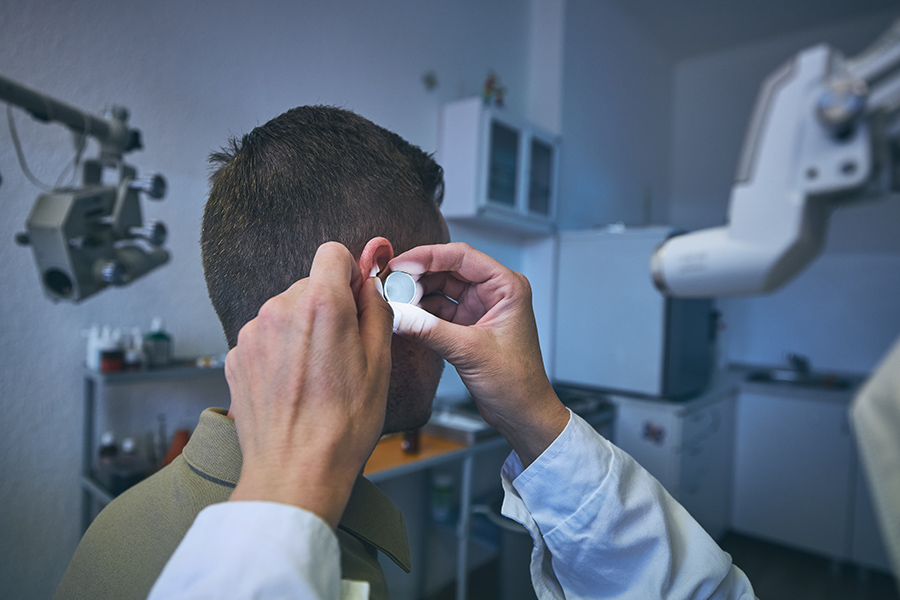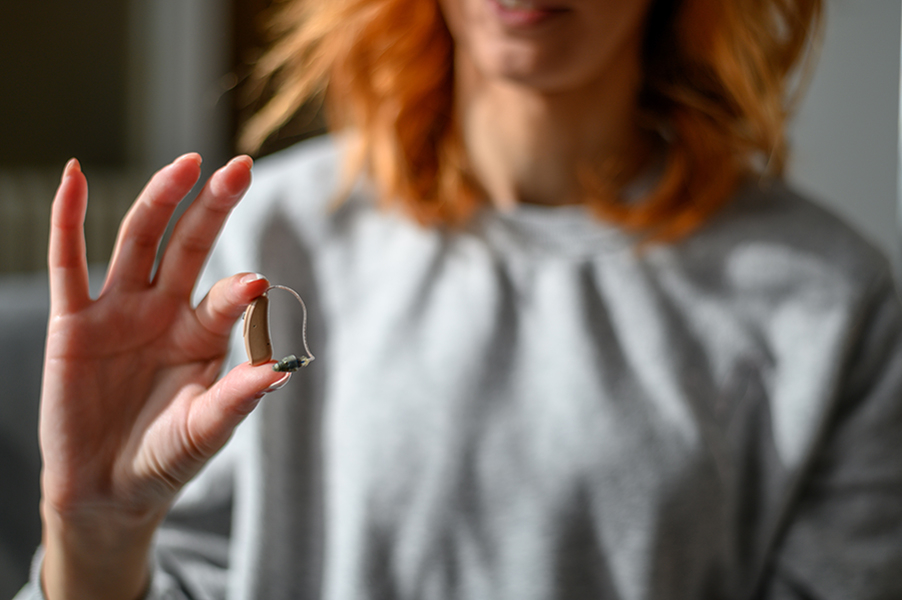Pulsatile tinnitus, characterized by the rhythmic perception of noise synchronized with one’s heartbeat, poses a significant challenge. However, adopting holistic and self-management strategies can substantially alleviate symptoms and enhance overall quality of life. This blog post delves into a range of approaches for effectively managing pulsatile tinnitus, encompassing lifestyle adjustments, sound therapy, mindfulness techniques, and the integration of technology.
Lifestyle Adjustments: Diet, Exercise, and Stress Management
Central to managing pulsatile tinnitus are lifestyle adjustments, starting with dietary considerations. Dietary choices can impact tinnitus symptoms, with high sodium intake potentially exacerbating the condition by elevating blood pressure. A well-balanced diet, rich in fruits, vegetables, and whole grains, is recommended. Foods containing magnesium and potassium, known for supporting nerve health and blood circulation, can be particularly beneficial.
Regular exercise is a cornerstone in tinnitus management. Physical activity enhances blood flow, reduces stress levels, and contributes to overall well-being, indirectly aiding in the management of tinnitus symptoms. Equally crucial is stress management, as heightened stress levels can exacerbate tinnitus. Techniques like yoga, meditation, and deep breathing exercises prove effective in stress reduction and symptom management.
QUIZ - CAUSES OF HEARING LOSS IN CHILDREN
Sound Therapy and Mindfulness Techniques for Pulsatile Tinnitus
Sound therapy emerges as a widely employed strategy for pulsatile tinnitus management. This therapeutic approach involves using external sounds to divert attention from the tinnitus noise. Utilizing devices such as white noise machines, nature sounds, or customized tinnitus masking sounds can be particularly effective during quiet periods, such as when attempting to fall asleep.
Mindfulness and meditation also play vital roles in managing tinnitus symptoms. These practices aid in focusing the mind, reducing stress, and alleviating anxiety associated with tinnitus. By cultivating mindfulness, individuals learn to observe their tinnitus without emotional reactions, potentially diminishing the perceived severity of the condition. Consistent practice can lead to sustained improvements in coping with pulsatile tinnitus.
Using Technology: Apps and Devices for Pulsatile Tinnitus Relief
The realm of technology provides innovative solutions for pulsatile tinnitus management. Numerous apps dedicated to tinnitus relief offer features such as customizable soundscapes, guided meditations, and educational resources. These apps serve as convenient tools for implementing sound therapy and relaxation techniques.
Wearable devices, including tinnitus maskers and hearing aids, prove advantageous in tinnitus management. These devices generate sounds that mask the tinnitus noise, making it less noticeable. Modern hearing aids often come equipped with built-in tinnitus masking features. Additionally, biofeedback devices, designed to control the body’s response to stress, can be effective in managing pulsatile tinnitus symptoms.
FAQ Section
Q1: How can diet affect pulsatile tinnitus?
A1: Diet plays a role in pulsatile tinnitus, as certain foods may trigger or worsen symptoms. Caffeine, alcohol, and high sodium intake can increase tinnitus severity. Conversely, a balanced diet with anti-inflammatory foods may help in symptom reduction.
Q2: What role does exercise play in managing tinnitus?
A2: Regular exercise enhances blood circulation, reduces stress, and indirectly contributes to tinnitus management by improving overall well-being.
Q3: How effective is sound therapy for tinnitus?
A3: Sound therapy is highly effective for many individuals with tinnitus, providing neutral or pleasant sounds to distract the brain from the tinnitus noise, particularly during quiet times such as sleep.
Q4: Can technology help in tinnitus management?
A4: Indeed, technology is a valuable tool in tinnitus management. Apps designed for relief and wearable devices like tinnitus maskers and hearing aids can significantly alleviate symptoms by masking the tinnitus sound or aiding stress management.
Practical Tips and Tricks
- Monitor Your Diet: Be mindful of your diet, avoiding foods that may trigger or worsen tinnitus symptoms.
- Stay Active: Engage in regular physical activities to improve circulation and reduce stress.
- Practice Stress Management: Incorporate stress-reducing activities like yoga or deep breathing into your routine.
- Explore Sound Therapy: Experiment with different sound therapy options to find what works best for you, especially during sleep.
- Leverage Technology: Utilize apps and devices designed for tinnitus relief to effectively manage your symptoms.
REFERENCES

Navigating Pulsatile Tinnitus in Seniors: Insights and Effective Management
Navigating pulsatile tinnitus in seniors requires a tailored approach that considers both insights and effective management strategies. As individuals age, their auditory health may become more complex, necessitating specialized care.

Navigating Pulsatile Tinnitus in Adults: Insights and Treatment Strategies
Navigating pulsatile tinnitus in adults requires a nuanced approach that combines insights and treatment strategies. From understanding the underlying causes to exploring effective






